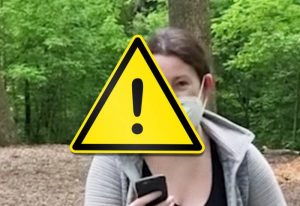Mindfulness-based interventions at schools can help students improve their thinking, resilience, emotional regulation and awareness, and overall mental health, according to a literature review in Psychiatric Services.
“As mindfulness interventions become more widely used and extensively studied, they hold promise for fostering student well-being and mitigating the development of mental health conditions over time,” wrote Tina Marshall, Ph.D., of research consulting firm Westat, and colleagues.
The authors conducted a review of research studies on school-based mindfulness interventions published between 2008 and 2022. To be included in the analysis, the intervention had to have mindfulness as its primary focus and include at least two components (for instance, a combination of breathing awareness and awareness of bodily sensations).
Marshall and colleagues rated the interventions according to the level of evidence supporting them. Of the 24 interventions that the researchers identified across 41 studies, three interventions were rated as having a high level of evidence supporting their effectiveness:
All three of these interventions incorporated components such as breathing awareness, awareness of bodily sensations, awareness of mental states, emotional self-regulation skills, and adopting a nonjudgmental attitude toward one’s present state. MiSP and MBSR also included seated or slow-walking meditation activities. The studies supporting these interventions were almost entirely conducted with middle or high school students.
Three other interventions—Gaia Program, MindUP, and a program that blended MBSR and mindfulness-based cognitive therapy—had a moderate level of supporting evidence. These interventions had more research with elementary school children and generally had activities to promote kindness, empathy, compassion, or gratitude.
Positive outcomes included significant improvements in executive functioning, resilience, emotion-regulation skills, emotional awareness, and emotional clarity, as well as decreases in internalizing, externalizing, and attention problems; stress; depressive symptoms; self-hostility; expressive suppression; avoidance and fusion; and rumination.
The researchers found that few studies examined outcomes for underserved populations. They noted that, given the positive outcomes, school administrators may choose to integrate these interventions into standard programming for health promotion. “Further research is needed to support decision makers in selecting cost-effective interventions and addressing the needs of students from underserved populations,” the researchers wrote.
For related information, see the Psychiatric News article “Mindfulness Has Parallels to Indigenous Cultural Practices.”
(Image: Getty Images/iStock/xavierarnau)




